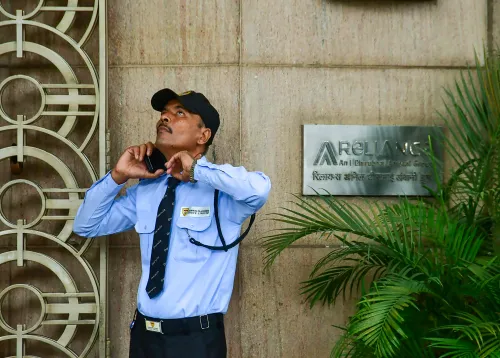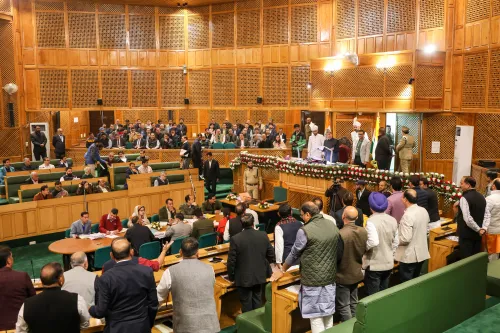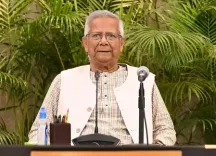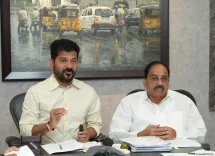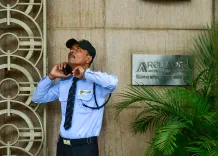Chadha Proposes Solutions to Mitigate Stubble Burning and Air Quality Crisis
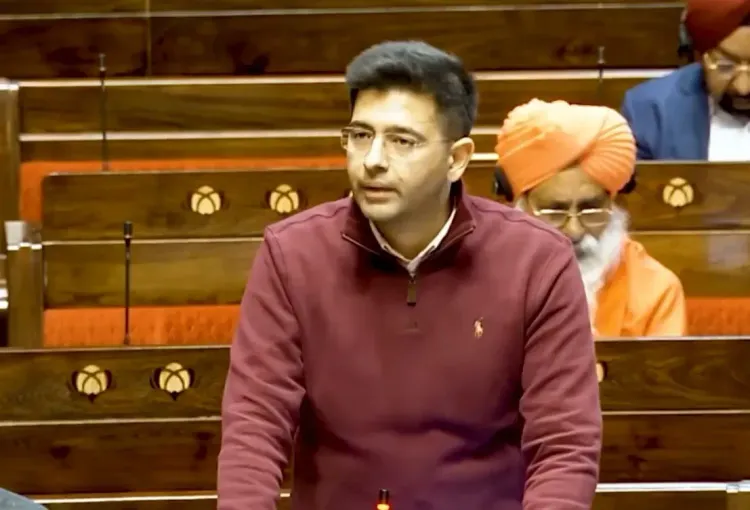
New Delhi, Dec 3 (NationPress) AAP Rajya Sabha MP, Raghav Chadha, proposed a comprehensive set of solutions on Tuesday aimed at addressing the challenges of stubble burning and the associated air pollution, which he emphasized is a pressing issue not limited to Delhi but affecting all of North India.
Chadha pointed out the significant reduction in stubble burning incidents in Punjab, clarifying that farmers do not engage in this practice out of choice but rather due to necessity.
While speaking in the Rajya Sabha, Chadha noted, "India is currently enveloped in a thick layer of smog, and with each breath, we inhale an unknown amount of cigarette and 'bidi' smoke. Air pollution is not merely a Delhi-centric problem; it is a crisis that impacts the entire North India."
Addressing the regional implications, he remarked, "Pollution knows no boundaries. Areas such as Bhagalpur, Muzaffarnagar, Noida, Hapur, Vidisha, Bhiwani, Bhiwadi, Agra, and Faridabad are experiencing worse air quality than Delhi. Yet, farmers are unjustly blamed for the air pollution crisis in our country. Today, I stand as the voice for those farmers."
Citing an IIT study, Chadha acknowledged that while stubble burning contributes to air pollution, it is "not the only factor."
He criticized the prevailing narrative that paints farmers as the sole perpetrators of pollution, stating, "Throughout the year, we revere farmers as our providers of food. However, as November arrives, we brand them as criminals, threaten them with imprisonment, and impose fines. No farmer burns stubble out of choice; they do so out of necessity."
Chadha highlighted that Punjab has recorded a more than 70 percent reduction in stubble burning this year, whereas neighboring states like Madhya Pradesh, Haryana, Uttar Pradesh, and Rajasthan have witnessed an increase in such incidents.
He explained, "Punjab began paddy cultivation to support the nation during a grain shortage. However, this came at a significant cost—water levels have plummeted by six hundred feet, and soil degradation has occurred. All this while rice is not even a staple in Punjab."
Chadha emphasized the practical difficulties farmers face, stating, "After harvesting paddy, farmers have merely 10-12 days to clear the stubble before planting the next crop. Failure to do so impacts the yield of the subsequent crop, forcing farmers to burn the stubble."
To resolve the issue, Chadha proposed both immediate and long-term strategies. For the urgent situation, he suggested providing financial assistance to farmers.
"Machines like the happy seeder and paddy chopper are costly to operate, costing between Rs 2,000–3,000 per acre. Farmers who are already struggling to break even cannot bear these expenses. If the Government of India allocates Rs 2,000 per acre and the state government contributes Rs 500, farmers will cease stubble burning. This short-term solution is feasible," he stated.
For a long-term approach, Chadha encouraged crop diversification, advocating for a transition from paddy cultivation to crops such as cotton, maize, pulses, and oilseeds. "This is vital for sustainable farming and for addressing air pollution in a holistic manner," he asserted.
Chadha also highlighted the significance of air quality monitoring and management, stating, "We often discuss AI, but to combat pollution effectively, we must engage in serious discussions about AQI." He emphasized the need for expansive initiatives to tackle air pollution in North India.



